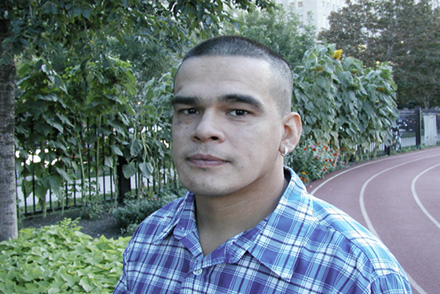An Illinois Man’s Long Struggle for Freedom
11.15.10
Rolando Cruz
was only a teenager when he was sentenced to death in Illinois in 1985 for the rape and murder of a 10-year-old girl. Wrongfully condemned, Cruz spent more than a decade on death row before a jury finally acquitted him 15 years ago this month.
The case took another turn last year when
Brian Dugan pled guilty
to the murder and was sentenced to death. According to prosecutors, Dugan’s DNA profile was consistent with crime scene evidence,
The injustice began for Cruz after the body of a 10-year-old girl was found in a wooded area several days after she had disappeared. Under pressure from the community and upcoming elections, the police hastened to find a suspect and picked up
Alejandro Hernandez
, who inculpated Rolando Cruz and a third man, Dugan, in return for small sums of money. Throughout the investigation, Cruz and Hernandez implicated each other for cash rewards. Innocent defendants
made incriminating statements or false confessions
in about 25% of DNA exoneration cases. These confessions are usually the result of external factors, including duress, coercion, intoxication, diminished capacity, mental impairment, ignorance of the law, fear of violence, the actual infliction of harm, the threat of harsh sentence, and misunderstanding the situation. Otherwise lacking significant substantial evidence, the prosecution capitalized on Cruz’s false confessions.
The injustice Cruz subsequently endured was further compounded when the sheriff’s detectives’ testified that Cruz had reported “visions” of the murder. The detectives contested that while recounting his “vision,” Cruz alluded to details of the crime, proving his involvement. The alleged “vision statement” was never recorded, yet it was entered into evidence and central to Cruz’s conviction. The Innocence Project has recommended reforms in the practice of suspect interrogation, including
mandatory electronic recording
, which has been shown to reduce the number of false confessions.
A new episode of PBS “Frontline” examines the issue of false confessions and wrongful convictions.
Watch the full episode online
.
Northwestern University’s David Protess and Larry Marshall assigned their students to investigate Rolando Cruz’s case. After three trials and three convictions, Cruz was finally granted a new bench trial. DNA tests showed that spermatozoa found near the crime scene could not have come from Cruz or Hernandez and that Brian Dugan could not be excluded as a source.
Rolando Cruz was officially exonerated on November 3, 1995 after spending over 10 years in prison for an egregious crime he didn’t commit. There have been 30 DNA exonerations in the state of Illinois where Cruz was wrongfully convicted. False confessions have played a role in 14 of those cases and government misconduct in eight.
Other Exoneration Anniversaries Nov. 1 to 13:
Jeffrey Deskovic
, New York (Served 15.5 Years, Exonerated 11/2/2006)
David A. Gray
, Illinois (Served 20 Years, Exonerated 11/6/1995)
Bernard Webster
, Maryland (Served, Exonerated 11/7/2002)
Walter Smith
, Ohio (Served 10 Years, Exonerated 11/8/1996)
Bruce Dallas Goodman
, Utah (Served 19 Years, 11/9/2004)
Joseph White
, Nebraska (Served 19 Years, 11/10/2008
David Brian Sutherlin
, Minnesota (Served 0 Years, 11/13/2003)

Leave a Reply
Thank you for visiting us. You can learn more about how we consider cases here. Please avoid sharing any personal information in the comments below and join us in making this a hate-speech free and safe space for everyone.